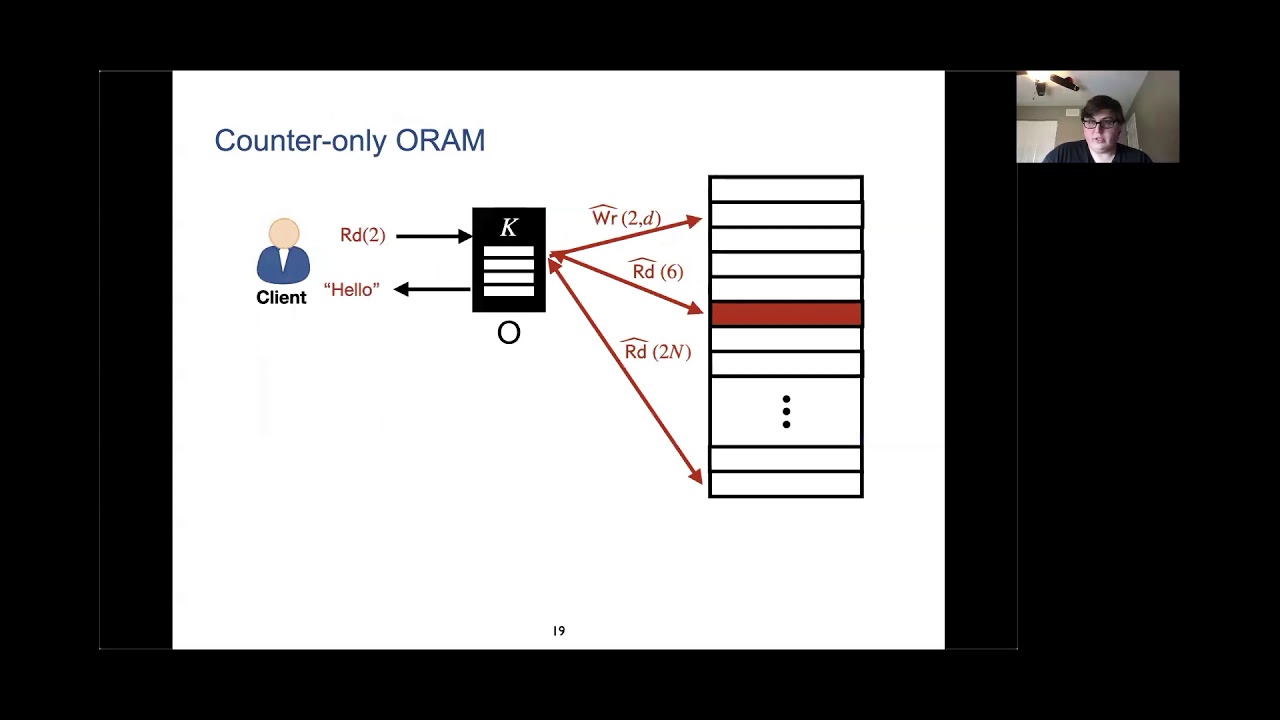Welcome to the resource topic for 2020/1195
Title:
A Lower Bound for One-Round Oblivious RAM
Authors: David Cash, Andrew Drucker, Alexander Hoover
Abstract:We initiate a fine-grained study of the round complexity of Oblivious RAM (ORAM). We prove that any one-round balls-in bins ORAM that does not duplicate balls must have either \Omega(\sqrt{N}) bandwidth or \Omega(\sqrt{N}) client memory, where N is the number of memory slots being simulated. This shows that such schemes are strictly weaker than general (multi-round) ORAMs or those with server computation, and in particular implies that a one-round version of the original square-root ORAM of Goldreich and Ostrovksy (J. ACM 1996) is optimal. We prove this bound via new techniques that differ from those of Goldreich and Ostrovksy, and of Larsen and Nielsen (CRYPTO 2018), which achieved an \Omega(\log N) bound for balls-in-bins and general multi-round ORAMs respectively. Finally we give a weaker extension of our bound that allows for limited duplication of balls, and also show that our bound extends to multiple-round ORAMs of a restricted form that include the best known constructions.
ePrint: https://eprint.iacr.org/2020/1195
Talk: https://www.youtube.com/watch?v=q5vjCqNQ3u0
See all topics related to this paper.
Feel free to post resources that are related to this paper below.
Example resources include: implementations, explanation materials, talks, slides, links to previous discussions on other websites.
For more information, see the rules for Resource Topics .
